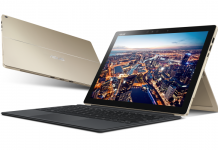
Competition is always a good thing, right? In today’s marketplace B&N is the company best positioned to compete with Amazon for #1 in ebook sales. The problem is B&N still operates like a brick-and-mortar retailer while Amazon is a technology company to the very core.
Some have suggested that Microsoft’s investment in B&N will help them make the transition to becoming a technology company. If spinning off the Nook business is what it takes for B&N to start thinking more like Apple, Google and Amazon then let’s hope they do it soon.
As the owner of a Nook with GlowLight it’s painfully obvious that B&N has a long way to go to catch up with Amazon. I like the Nook but sometimes it’s quite clear it wasn’t created by a technology company. Here are a few reasons why:
Highlights — This one amazes me. Highlighting some text in an ebook should be as simple as touching the screen at the start of the highlight and dragging to the end of it. That’s exactly how it works on the Kindle Touch, for example. Good luck trying to highlight text on the Nook. Dragging across the screen confuses the Nook. You have to just touch in one spot and wait for that word to be selected. You’ll see vertical bars marking the beginning and end of that word but I dare you to move those and select a sentence. I can move the end marker but when I try to slide the beginning marker it moves the end one as well. It’s a maddening experience and something B&N should have fixed long ago. This is simple highlighting after all…we’re talking basic ebook app functionality!
Sideloading — At least Amazon acknowledges they’re not the only source of content for their customers. That’s why they make it so easy to put your own mobi or PDF files on a Kindle device. For example, your Kindle has its own email address so you can quickly send files to it without physically connecting it to a computer. Then there’s the handy Send to Kindle app, another nifty wireless way to move content. B&N doesn’t offer either of these two options so you’re stuck grabbing the USB cable and dragging files the old fashioned way.
Speed of Android app — It always feels like an eternity the first time I launch the Nook app on my Android tablet. I just timed it and it took 12 seconds to load. That’s ridiculous. The Kindle app loads much faster than that. In fact, all the typical operations in the Nook app take longer than they do in the Kindle one (e.g., going to the bookstore, doing a search, etc.) The Kindle app feels much more polished and optimized than the Nook one.
Samples — This isn’t a technology issue but one I couldn’t ignore, especially if B&N wants to be a leader. It’s not unusual to find a Nook book on B&N’s site with no sample content. Nine times out of ten if I’m thinking of buying an ebook I grab the free sample first to make sure I like it. I’ve had two separate situations where there was no sample material for the Nook edition but Amazon offered a sample for the Kindle version. That should never happen.
B&N has contributed significantly to the commoditization of eInk readers. There’s really nothing to distinguish one from the others these days. Yes, I like having the light built into my Nook but Amazon and others will undoubtedly offer the same feature soon too.
B&N CEO William Lynch needs to focus on answering this one important question: Why would someone want to buy a Nook over a Kindle? If their answer is “because we have GlowLight” he might as well just fold up his tent and go home now.
IMHO, that question is best answered by a technology-focused company, not one with deep roots in the brick-and-mortar world. Innovation opportunities are out there and they’re not dependent on eInk devices. Companies like ReadSocial, BookShout andInkling come to mind, to name a few.
B&N needs to consider the entire ecosystem they’re operating in and develop a vision for what it could look like in 2-3 years. It wouldn’t hurt to think a bit like Steve Jobs. He didn’t want to make a slightly better MP3 player. His vision was to create an entirely new digital music platform. Apple is a technology company though and B&N isn’t…yet.

































The above points are also applicable to Sony and Kobo. And, when in heaven’s name is B&N going to start letting Canadian buy their products? 3 cheers for Amazon (there will be no competition once Amazon starts selling those Fire’s, etc. internationally–still can’t figure why they haven’t done it yet).
B&N positioned to challenge Amazon for #1 in ebooks?
Uh… No.
Not soon.
Not unless Amazon makes a mistake of biblical proportions.
And probably not even then.
Yes, Nook has around a quarter of the US market (to Amazon’s 60%-plus) but that share hasn’t moved in a year or more. They’re running as fast as they can just to stay where they are.
More, outside the US, they have zero presence while Amazon has 80% in the UK and are expanding all over the continent and heading to Brazil and other large markets.
B&N is probably positioned to be number three–even number two is a dream right now–and if they don’t start moving *soon*, four wouldn’t be out of the question, Microsoft support or no Microsoft support. Let’s not forget Kobo and Apple; both are already playing and selling internationally while B&N is still…planning…
B&N’s problems have gone beyond money or even business model–it is *time* they are lacking. Every day that passes Amazon grows their install base, their international market presence, their reader and *author* mindshare.
Don’t look to B&N as a savior aganst eee-vile Amazon; they are simply too far back to make up much ground any time soon.
One thing that Sony as that the others don’t is a better GUI. The Sony reader catalog organization based on metadata tags surpasses all the other ereader systems out there except if you use calibre and opds.
devini: when will Canada repeal its Investment Canada Act that blocks US bricks-and-mortar booksellers from selling in Canada? This might be one reason that B&N is considering spinning the NOOK off as a separate business.
In the meantime, don’t blame B&N for Canada’s laws. Write your MP.
Doug – so B&N are blocking the Canadian market out of some kind of spite ? If that is true and this is the level of their professionalism, then the people who run B&N are doomed to failure …
Wow, Howard, you din’t read his post very well. Doug is claiming B&N can’t sell to Canadians due to Canadian law that blocks US brick-and-mortar booksellers. I’ve not verified his claim, but it sounds correct. There’s no B&N spite there, but Canadian law stupidity.
Howard: Here’s a (PDF) discussion from 2008 of the Investment Canada Act by the Canadian Booksellers Association (a group obviously in favor of the protection granted by the Act):
http://www.ic.gc.ca/eic/site/cprp-gepmc.nsf/vwapj/Canadian_Booksellers.pdf/$file/Canadian_Booksellers.pdf
Some excerpts:
“The Act prohibits existing Canadian booksellers from being acquired by foreign interests, and also conditions new foreign-owned booksellers must follow before setting up in Canada. Such restrictions have meant that virtually all of Canada’s booksellers are domestically owned.”
and:
“Amazon.com has been operating in Canada since the summer of 2002. The entry of this American retail giant into the Canadian market flies in the face of the Investment Canada Act…
“Amazon has been allowed to circumvent the intention of these rules because the rules were designed before the introduction of the Internet. The Act defines a bookseller as meeting two key criteria: one, physical store location and two, employees.”
Oye – Apologies, I didn’t read the detail and I was wrong.
Is this not a WTO issue ? And can’t B&N sell their eBooks into Canada ? No ?
Amazon sells devices and eBooks to Canadians through the US Amazon website. My understanding is that foreign owned companies can’t open bricks and mortar book stores, but can sell over the net without any problems.
B&N not selling to Canadians and other filthy foreigners (or to the odd US resident who B&N’s IP geolocation system incorrectly flags as not being in the US, or to people who live in the US but may want to buy a book while travelling for business or on vacation) is due to a combination of legacy publishing’s insistence on forcing the round peg of ebook sales into the square hole of regional rights and inept design on B&N’s part.
It’s all very weird. Now that Amazon has a UK store, I can only buy ebooks there, not in the US store. But before they had it, I *could* buy ebooks in their US store. But I can’t buy from anybody else in the US. Except if I buy paper books!
Eolake, see Peter’s comment above yours. Instead of selling ebooks globally, Big Publishing and local retailers have created as many barriers as they can. No, you can’t buy from us. Yes, you can buy from us but you’ll pay much more. Well, we used to let you buy from us, but we’ve changed the rules.
Basically, if you live in the U.S., you have lots of choice and convenience. If you happen to be one of the majority of English speakers who live outside the U.S., you’re screwed.